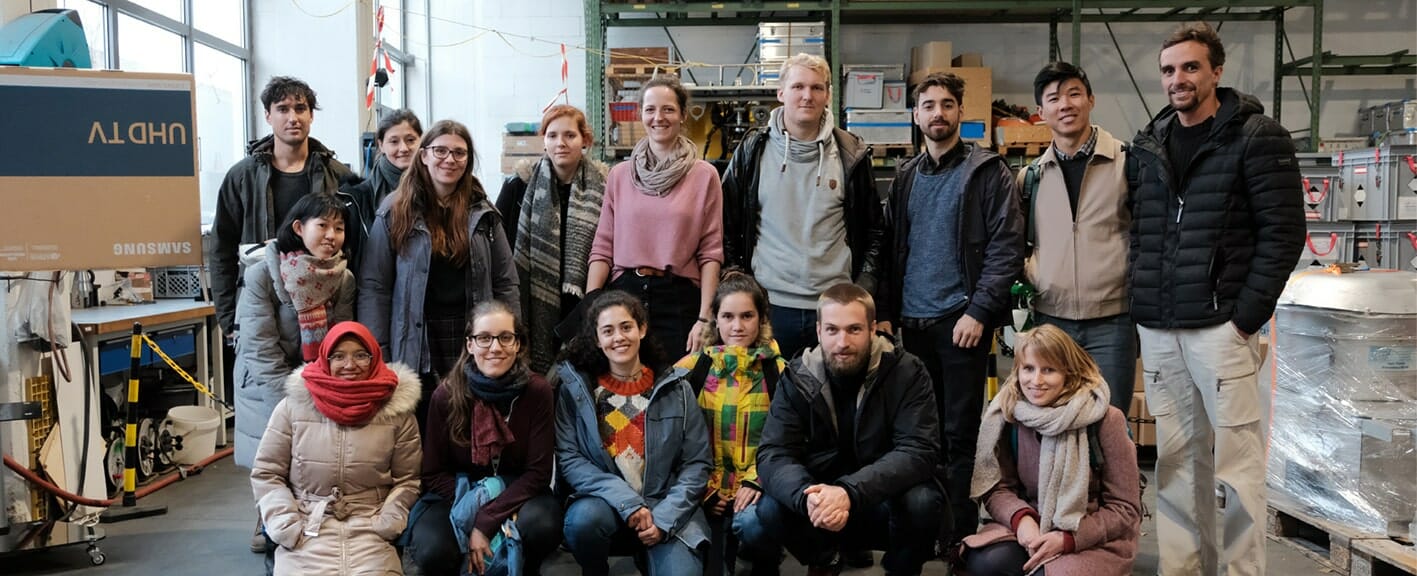
The Effect of Microplastic on the Ocean
Students from all over the Globe Start a Joint Research Program
Kiel, Germany. What kind of effect does microplastic have on marine organisms? This question serves as the central research question within the GAME research and training program at the GEOMAR Helmholz Centre for Ocean Research in Kiel. 17 students from nine different countries are working together in order to find out. The Röchling Foundation supports the program and was involved in its launch in Kiel.
It is not new that the world has a problem with plastic waste flooding our oceans. However, we still know little about the effects of this pollution on the environment, in particular in regard to what is known as microplastic. In order to identify imminent threats to the marine ecosystem, we need to gather more knowledge on the biological effects of microplastic.
The young scientists participating in GAME set their focus on the comparison between microplastic and natural particles. The investigations focus on organisms which filter their food out of the water, such as mussels. Such filter organisms are designed to deal with the natural pollution of water and filter particles such as sand and suspended matter which they cannot absorb. Up until now, it is still not clear whether microplastic has the same effect as natural particles or whether its effect is completely different. The goal of this project is to determine if microplastic is just another source of particles which needs to be filtered like the rest of them, or if it represents a new form of pollution.
“The program starts off in Kiel with a joint preparation phase. The group will then be divided into teams of two. The practical work will be carried out at the various partner institutes around the world. In addition to GEOMAR, partner institutions in Australia, Chile, Cape Verde, Indonesia, Israel, Japan, Portugal, South Africa and Brazil are involved this year,” explains project coordinator Dr. Mark Lenz of GEOMAR.
After completing all experiments, the participants return to Kiel. The results are then compared and evaluated at GEOMAR. In the following, the students will write their master theses about the project and attend additional teaching modules in order to prepare for their international scientific careers.
GAME is the abbreviation for Global Approach through Modular Experiments. For 17 years now, the international research and education program has been inviting students of biology and related disciplines to participate in global studies investigating the effects of man-made changes on the ocean. The teams, consisting of one student from the partner institute and one German student, will conduct identical experiments at the various locations between April and September. Thus, many climate zones and biogeographical regions are being covered. At the end of each study, the results from the different sites will be compared. This serves to find out whether the systems react differently to the changes or whether the reactions are the same everywhere.
This year, it will be carried out at a total of nine locations in Australia, Brazil, Cabo Verde, Chile, Indonesia, Israel, Japan, Portugal and South Africa. The teams will regularly report on the status of their work on a blog.
The Röchling Foundation is financing a portion of GEOMAR’s personnel costs for GAME 2019.

